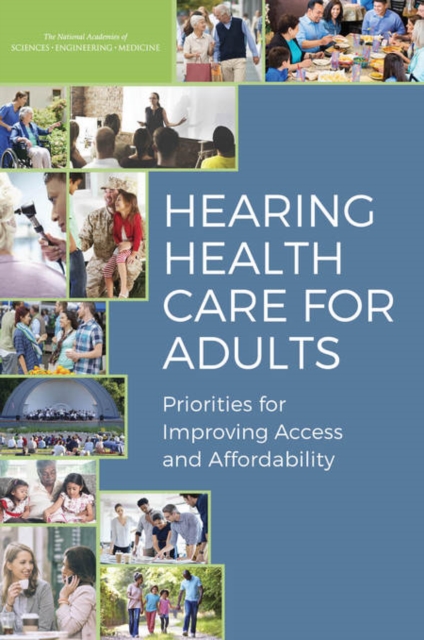
Hearing Health Care for Adults : Priorities for Improving Access and Affordability PDF
by Engineering, and Medicine National Academies of Sciences, Health and Medicine Division, Board on Health Sciences Policy, Committee on Accessible and Affordable Hearing Health Care for Adults
Edited by Catharyn T. Liverman, Sarah Domnitz, Dan G. Blazer
Description
The loss of hearing - be it gradual or acute, mild or severe, present since birth or acquired in older age - can have significant effects on one's communication abilities, quality of life, social participation, and health. Despite this, many people with hearing loss do not seek or receive hearing health care. The reasons are numerous, complex, and often interconnected. For some, hearing health care is not affordable. For others, the appropriate services are difficult to access, or individuals do not know how or where to access them. Others may not want to deal with the stigma that they and society may associate with needing hearing health care and obtaining that care. Still others do not recognize they need hearing health care, as hearing loss is an invisible health condition that often worsens gradually over time.
In the United States, an estimated 30 million individuals (12.7 percent of Americans ages 12 years or older) have hearing loss. Globally, hearing loss has been identified as the fifth leading cause of years lived with disability. Successful hearing health care enables individuals with hearing loss to have the freedom to communicate in their environments in ways that are culturally appropriate and that preserve their dignity and function.
Hearing Health Care for Adults focuses on improving the accessibility and affordability of hearing health care for adults of all ages. This study examines the hearing health care system, with a focus on non-surgical technologies and services, and offers recommendations for improving access to, the affordability of, and the quality of hearing health care for adults of all ages.
Information
-
Download - Immediately Available
- Format:PDF
- Pages:324 pages
- Publisher:National Academies Press
- Publication Date:06/09/2016
- Category:
- ISBN:9780309439275
Information
-
Download - Immediately Available
- Format:PDF
- Pages:324 pages
- Publisher:National Academies Press
- Publication Date:06/09/2016
- Category:
- ISBN:9780309439275






